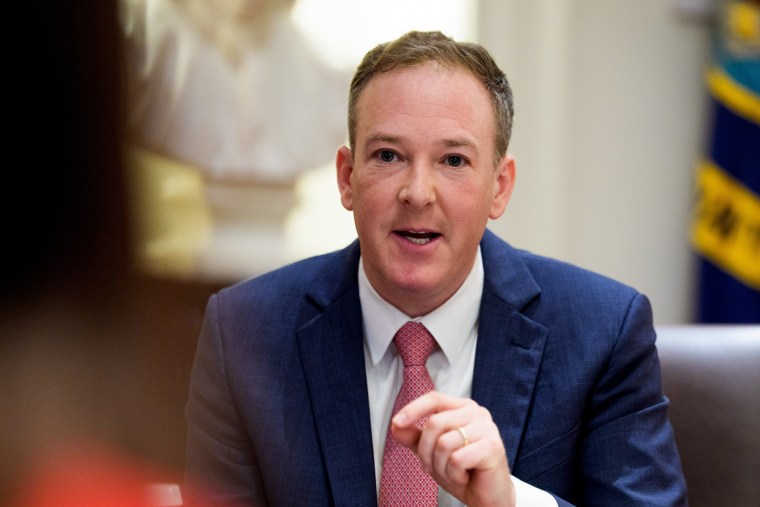As representatives from nearly 200 countries wrapped up negotiations at the United Nations' COP30 climate summit this week, the United States not only absentThe Trump administration has also introduced a series of sweeping proposals to roll back environmental protections and encourage fossil fuel production.
UN Climate Change Conference ended Friday in the Brazilian city of Belem, where delegates gathered to hammer out a roadmap to phase out fossil fuels, step up action to combat climate change and limit global warming.
For the first time in the history of the summit, the United States – one of the largest emitters of greenhouse gases – did not send a delegation. Instead, the Trump administration this week announced a plan open new oil wells off the coast of California and Florida for the first time in decades and proposed rule changes weaken the Endangered Species Act And limit the powers of the Environmental Protection Agency to protect wetlands and streams.
“These rules double down on the administration's refusal to seriously confront the climate crisis and essentially move us in the opposite direction,” said Jessie Ritter, associate vice president for water resources and coasts for the National Wildlife Federation, a conservation group.
The White House told NBC News on Friday that this week's “historic” announcements are intended to “advance President Trump's agenda of American energy dominance.”
“President Trump is reversing government abuses, restoring energy security and protecting American jobs by eliminating overreaching, burdensome regulations and creating new opportunities to DRILL, BABY, DRILL,” White House spokeswoman Taylor Rogers said in a statement. “President Trump serves the American people, not the radical climate activists who are the victims of the biggest scam of the century.”
Ritter said the new proposals signal to the world how far the U.S. has moved away from any meaningful action on climate change.
“I doubt it will surprise people watching on the international stage,” she said. “But it's unfortunate given the example the U.S. sets and what our leadership, or lack thereof, encourages other countries to do.”
The Trump administration's announcement Thursday that it intends to open up some 1.27 billion acres of U.S. coastal waters to oil drilling has drawn bipartisan opposition.
Although the American Petroleum Institute, a trade association for the oil and gas industry, welcomed the program as “A historic step toward unlocking our nation's vast marine resources,” Sen. Rick Scott (R-Fla.) pushed to maintain the current moratorium on drilling that Trump extended during his first term.
“I spoke with @SecretaryBurgum and made it clear that this moratorium must remain in place and that any plan for Florida's coastlines must keep oil drilling off the radar to protect Florida's tourism, environment and military training capabilities,” Scott wrote on Thursday on X, referring to Interior Secretary Doug Burgum.
Across the country, California Governor Gavin Newsom wrote: by X that “Donald Trump's idiotic proposal to sell the California coast to his big oil donors is hopelessly lost.”
“We will not stand by as our coastal economies and communities are put at risk,” he said.
The drilling directive comes just three days after the Trump administration proposed major restrictions to the 1972 Clean Water Act that would remove pollution and runoff protections for most of the country's small streams and wetlands. This rule would narrow the definition of what qualifies as “waters of the United States” under the law.
If completed, changes will mean the least amount of freshwater resources will be under federal protection since the law's passage, according to John DeWine, who heads the water policy group at the Natural Resources Defense Council, an environmental advocacy group.
“By the Environmental Protection Agency's own estimates, only about 19% of the nation's wetlands would be protected from unregulated destruction and development if this project were completed,” Devin said.

Wetlands serve as a flood buffer by absorbing and storing water during heavy rainfall and other events of heavy runoff. As the climate warms, coastal and inland flooding is expected to become more frequent and severe.
“Many places that already exist in the U.S. that are increasingly prone to flooding due to climate change will be in even greater danger,” Devine said.
Wetlands and streams also feed into other bodies of water that serve as important sources of drinking water across the country, so critics worry the policy could make drinking water unsafe in some communities.
The third major environmental rollback announced this week was a set of four rules that would undermine protections under the 1973 Endangered Species Act. The proposed changes are intended to make it easier to remove species classified as endangered or threatened and make it more difficult to add new protected species and their habitats to the list. The rules, if adopted, would also allow the government to consider “economic impacts” when deciding whether to list or delist species.

Taken together, Ritter said, the three proposals are consistent with the Trump administration's deregulatory agenda.
“These decisions prioritize short-term gains, often for a few industries and special interests, at the expense of things that have been broadly bipartisan and important to people for decades,” Ritter said.
The impact of the changes may not be immediately obvious, but the scale of the long-term consequences could be enormous, she said.
“It's really not an exaggeration that this will affect all Americans in some way,” she said. “Everything is connected, and it is arrogant to think that we can have such a huge negative impact on our rivers and wetlands, our animals, our coastal waters, without having an impact on people.”








